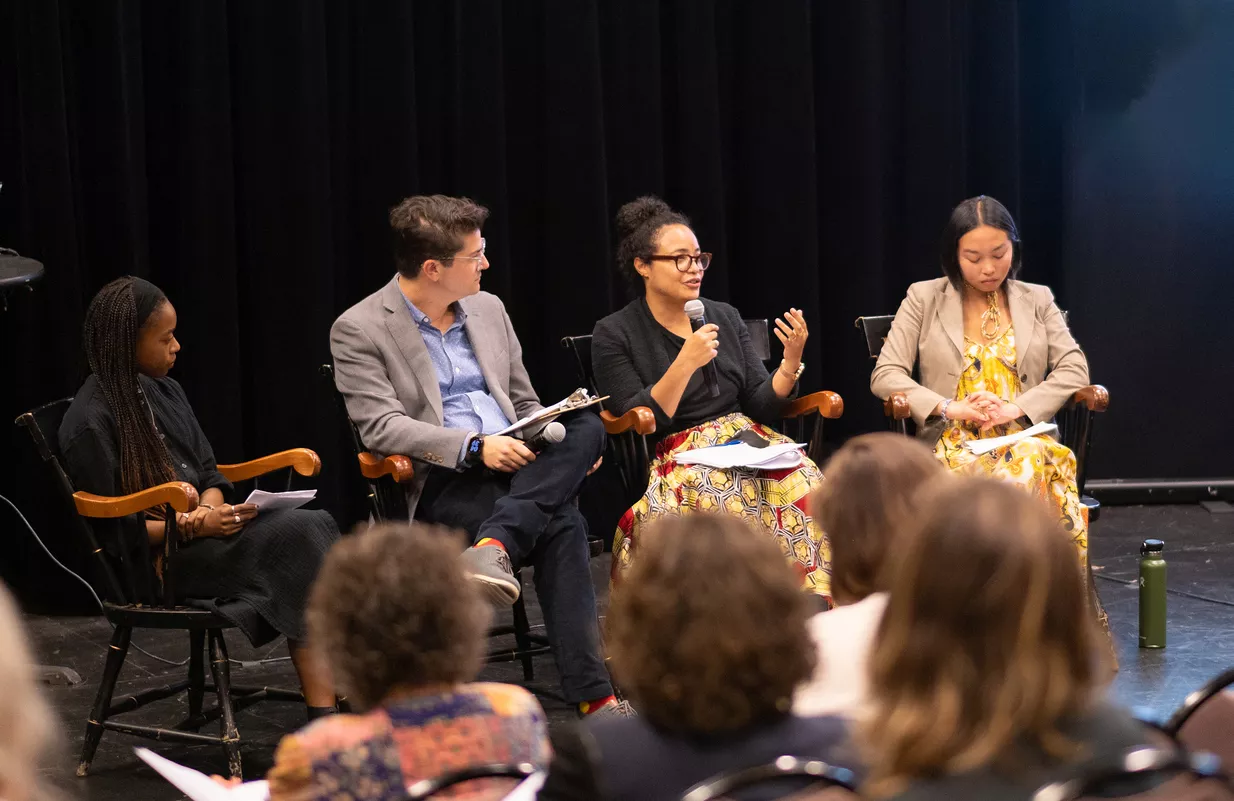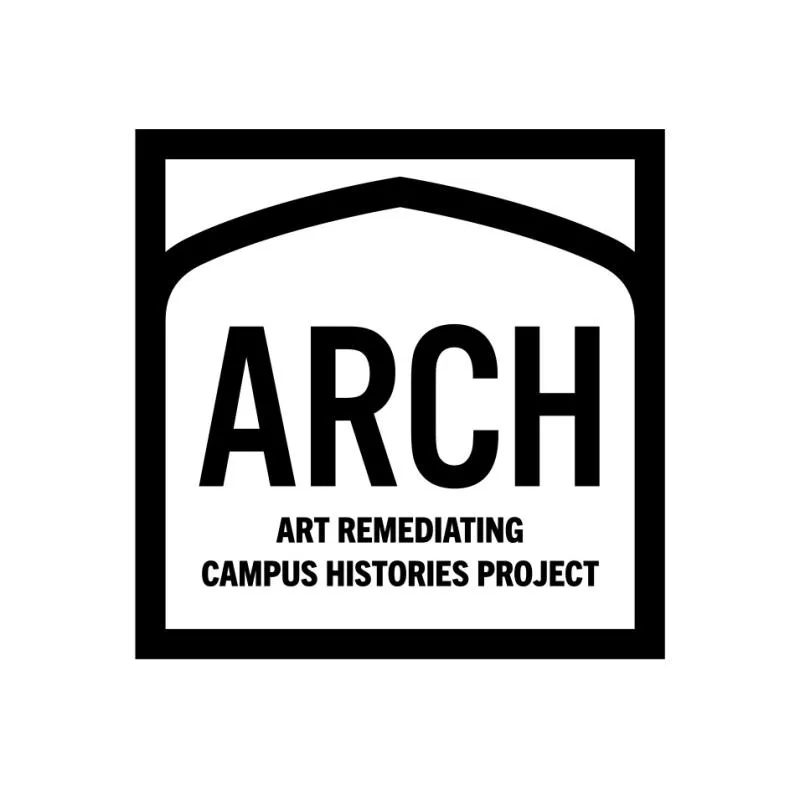Creation of Artwork Addressing BMC Legacy of Exclusion Takes Big Step Forward

The creation of a new on-campus public artwork that addresses the legacy of exclusionary practices at the College has taken a major step forward with the launch of an online application portal for artists to submit ideas and express interest.
This news, as well as a formal name for the project—ARCH (Art Remediating Campus Histories)—was announced by members of the steering committee guiding the project and Monument Lab director Paul Farber at a September 27 event on campus. Monument Lab is a non-profit public art and history studio with whom the College is partnering on this project. The partnership was first announced in September of 2021.
The idea for the project originated in 2019 as a recommendation by the Telling Bryn Mawr Histories Working Group. The proposal since garnered support from students, including in 2020 strike demands, and from a variety of campus stakeholders. The partnership with Monument Lab began in earnest during the 2021–22 academic year, when Monument Lab staff worked with paid student researchers on an intensive community engagement process around the same question the interested artists will be asked to answer: “What stories are missing from Bryn Mawr College?”
“There are a lot of different ways that artists might answer this prompt, building on some powerful ideas campus participants have already shared during our year of engagement,” said Farber at the event. “If you spend time in Special Collections, there are stories there, if you spend time speaking with alums and staff, they’re there. If you hear current students engaging and interacting with each other, the stories are there and meaningful to spotlight and build upon.”
In February 2022 the student researchers facilitated on-campus events in which students, staff, faculty, and alums were invited to respond to the research question through paper engagement forms that asked respondents to map the campus according to their own perspectives and experiences. Respondents could draw, sketch, and/or describe their maps. A total of 303 maps were collected and 56 alums filled out engagement forms online. Student researchers also conducted several oral history interviews with long-serving staff and with alumnae.
The artist application portal went live on October 6 and will be accepting submissions until November 8. After that, the project’s Artist Advisory Committee will select five artists who will be paid to produce more detailed proposals. Once the five finalists are selected, finalists will be paid $4,000 for their full proposals and will have opportunities to visit campus to spend time with the community. Public presentations by the finalists are planned for late March 2023.
The plan is to have the final artist and proposal selected by late April 2023 and the piece dedicated in 2024. The dedication will include a multi-disciplinary symposium on issues related to the artwork and project.
From the onset of the project, integrating the study of memory, memorials, and monuments has been a central idea, says Associate Professor of History of Art and Director of Museum Studies Monique Scott, co-chair of the Artist Advisory Committee. Fortunately, there are faculty across the college that can contribute expertise on this endeavor, in particular Professors Sharon Ullman and Lisa Saltzman.
Professor of History Sharon Ullman’s current class on the 1960s includes extensive consideration of Civil Rights monuments and an upcoming course from Professor of History of Art Lisa Saltzman will “immerse students in the political, aesthetic, and ethical issues at stake in the creation and reception of monuments, memorials, and other sites of collective memory.” In spring 2022, Scott offered the course Museums, Monuments & Memory, which examined a variety of artistic, historical, and museological approaches to public memory and public history, with particular attention paid to sites of memory on Bryn Mawr’s campus.
Scott also shares that she hopes the new artwork created for Bryn Mawr’s campus will become an active site for new rituals, storytelling and memory-making for students, staff, faculty and alums.
Members of the Artist Advisory Committee are: Annalise Ashman ’24; Millie Bond ’05, executive director of constituent engagement, alumni relations; Amy Goldrich ’86; Erika Guadalupe Nuñez ’13; Olivia Harkins-Finn ’23; Justine Jentes ’88; board of trustees member Tuajuanda Jordan; Professor of History of Art Homay King; Ruth Lindeborg ’80, chief of staff and secretary of the College; Professor of History of Art Lisa Saltzman; Associate Professor of History of Art and Director of Museum Studies Monique Scott; Professor of History Sharon Ullman; and Elliot Waters-Fleming ’22, assistant project manager, Monument Lab.
In addition to the current students on the advisory committee, Eryn Peritz ’25 is interning with Monument Lab. Previous student research interns included Elliot Waters-Fleming ’22 (who now works for Monument Lab), Faryal A. Khan ’22, Olivia Harkins-Finn ’23, Annalise Ashman ’24, Aaliyah R. Joseph ’22, and Linda Chen ‘23.
“This has been an incredible year-plus of close work with students, staff, faculty, and alums. We continue to learn as partners. We are excited to take this next step and to open this to artists and to see how the work sparks reckoning and reimagining in new ways,” says Farber, who will be speaking at the Visual Culture Colloquium on October 26 at 12:30 p.m.
“We don’t know what the artist will imagine,” adds Scott, “whether the artwork will be quiet and contemplative or striking and invigorating, or anything beyond or in between. But we do know that this piece of public art will have a presence that shifts the energy on campus in new ways, and that in itself is inspiring."
